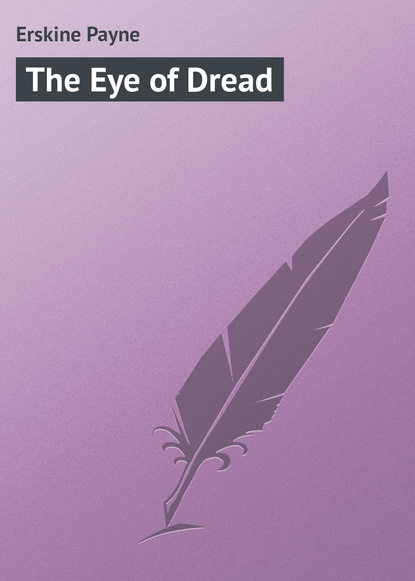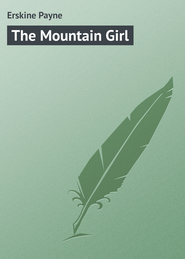По всем вопросам обращайтесь на: info@litportal.ru
(©) 2003-2024.
✖
The Eye of Dread
Настройки чтения
Размер шрифта
Высота строк
Поля
“What was your father’s business?”
“My father had no business. He was what you call a nobleman. He had very much land, but he was generous and gave it nearly all away to his poor people. My father was very learned and studied much. He made much music–very beautiful–not for money–never for that. Only after we came to this country did he so, to live. Once he played in a great orchestra. It was then those men found him and came so often that he had again to go away and hide. I think they brought him papers–very important–to be sacredly guarded until a right time should come to reveal them.”
“And you have no knowledge why he was followed and persecuted?”
“I was so little at the beginning I do not know. If it was that in his religion he was different,–or if he was trying to change in the government the laws,–for we are not of Russia,–I know that when he gave away his land, the other noblemen were very angry with him, and at the court–where my father was sent by his people for reasons–there was a prince,–I think it was about my mother he hated my father so,–but for what–that I never heard. But he had my father imprisoned, and there in the prison they–What was that word,–hectored? Yes. In the prison they hectored him greatly–so greatly that never more was he straight. It was very sad.”
“I don’t think we would say hectored, for that. I think we would say tortured.”
“Oh, yes. I see. To hector is of the mind, but torture is of the body. It is that I mean–for they were very terrible to him. My mother was there, and they made her look at it to bring him the more quickly to tell for her sake what he would not for his own. I think when she looks long before her at nothing, she is seeing again the tortures of my father, and so she cries out in that terrible way. I think so.”
“What were they trying to get out of him?”
Amalia looked up in his face with a puzzled expression for a moment. “Get–out–of–him?” she asked.
“I mean, what did they want him to tell?”
“Ah, that I know not. It was never told. If they could find him, I think they would try again to learn of him something which he only can tell. I think if they could find my mother, they would now try to learn from her what my father knew, but her lips are like the grave. At that time he had told her nothing, but since then–when we were far out in the wilderness–I do not know. I hope my mother will never be found. Is it a very secret place to which we go?”
“I might call it that–yes. I’ve lived there for twenty years and no white man has found me yet, until the young man, Harry King, was pitched over the edge of eternity and only saved by a–well–a chance–likely.”
The young woman gazed at him wide-eyed, and drew in her breath. “You saved him.”
“If he obeyed me–I did.”
“And all the twenty years were you alone?”
“I always had a horse.”
“But for a companion–had you never one?”
“Never.”
“Are you, too, a good man who has done a deed against the law of your land?”
The big man looked off a moment, then down at her with a little smile playing about his lips. “I never did a deed against the law of any land that I know of, but as for the good part–that’s another thing. I may be fairly good as goodness goes.”
“Goodnessgoes!” She repeated after him as if it were one word from which she was trying to extract a meaning. “Was it then to flee from the wicked world that you lived all the twenty years thus alone?”
“Hardly that, either. To tell the truth, it may be only a habit with me.”
“Will you forgive me that I asked? It was only that to me it has been terrible to live always in hiding and fear. I love people, and desire greatly to have kind people near me,–but of the world where my father and mother lived, and at the court–and of the nobles, of all these I am afraid.”
“Yes, yes. I fancy you were.” A grim look settled about his mouth, although his eyes twinkled kindly. He marveled to think how trustingly they accompanied him into this wilderness–but then–poor babes! What else could they do? “You’ll be safe from all the courts and nobles in the world where I’m taking you.”
“That is why my eyes do not weep for my father. He is now gone where none can find him but God. It is very terrible that a good man should always hide–hide and live in fear–always–even from his own kinsmen. I understand some of the sorrows of the world.”
“You’ll forget it all up there.”
“I will try if my mother recovers.” She drew in her breath with a little quivering catch.
“We’ll wake her now, and start on. It won’t do to waste daylight any longer.” Secretly he was afraid that they might be followed by Indians, and was sorry he had made the fire in the night, but he reasoned that he could never have brought them on without such refreshment. Women are different from men. He could eat raw bacon and hard-tack and go without coffee, when necessary, but to ask women to do so was quite another thing.
For long hours now they traveled on, even after the moon had set, in the darkness. It was just before the dawn, where the trail wound and doubled on itself, that the sorrel horse was startled by a small rolling stone that had been loosened on the trail above them. Instantly the big man halted where they were.
“Are you brave enough to wait here a bit by your mother’s horse while I go on? That stone did not loosen itself. It may be nothing but some little beast,–if it were a bear, the horses would have made a fuss.”
He mounted the sorrel and went forward, leaving her standing on the trail, holding the leading strap of her mother’s horse, which tossed its head and stepped about restlessly, trying to follow. She petted and soothed the animal and talked in low tones to her mother. Then with beating heart she listened. Two men’s voices came down to her–one, the big man’s–and the other–yes, she had heard it before.
“It is ’Arry King, mother. Surely he has come down to meet us,” she said joyfully. She would have hurried on, but bethought herself she would better wait as she had been directed. Soon the big man returned, looking displeased and grim.
“Young chap couldn’t wait. He gave me his promise, but he didn’t keep it.”
“It was ’Arry King?” He made no reply, and they resumed their way as before. “It was long to wait, and nothing to do,” she pleaded, divining his mood.
“I had good reasons, Miss. No matter. I sent him back. No need of him here. We’ll make it before morning now, and he will have the cabin warm and hot coffee for us, if you can stand to go on for a goodish long pull.”
A goodish long pull it surely was, in the darkness, but the women bore up with courage, and their guide led them safely. The horse Amalia rode, being his own horse, knew the way well.
“Don’t try to guide him; he’ll take you quite safely,” he called back to her. “Let the reins hang.” And in the dusk of early morning they safely turned the curve where Harry King had fallen, never knowing the danger.
Harry King, standing in the doorway of the cabin, with the firelight bright behind him, saw them winding down the trail and hurried forward. They were almost stupefied with fatigue. He lifted the mother in his arms without a word and carried her into the cabin and laid her in the bunk, which he had prepared to receive her. He greeted Amalia with a quiet word as the big man led her in, and went out to the horses, relieved them of their burdens, and led them away to the shed by the spring. Soon the big man joined him, and began rubbing down the animals.
“I will do this. You must rest,” said Harry.
“I need none of your help,” he said, not surlily, as the words might sound, but colorlessly.
“I needed yours when I came here–or you saved me and brought me here, and now whatever you wish I’ll do, but for to-night you must take my help. I’m not apologizing for what I did, because I thought it right, but–”
“Peace, man, peace. I’ve lived a long time with no man to gainsay me. I’ll take what comes now and thank the Lord it’s no worse. We’ll leave the cabin to the women, after I see that they have no fright about it, and we’ll sleep in the fodder. There have been worse beds.”
“I have coffee on the hearth, hot, and corn dodgers–such as we used to make in the army. I’ve made them often before.”
“Turn the beasts free; there isn’t room for them all in the shed, and I’ll go get a bite and join you soon.”
So Harry King did not return to the cabin that night, much as he desired to see Amalia again, but lay down on the fodder and tried to sleep. His heart throbbed gladly at the thought of her safety. He had not dared to inquire after her father. Although he had seen so little of the big man he understood his mood, and having received such great kindness at his hands, he was truly sorry at the invasion of his peace. Undoubtedly he did not like to have a family, gathered from the Lord only knew where, suddenly quartered on him for none knew how long.
The cabin was only meant for a hermit of a man, and little suited to women and their needs. A mixed household required more rooms. He tried to think the matter through and to plan, but the effort brought drowsiness, and before the big man returned he was asleep.
CHAPTER XVI
A PECULIAR POSITION
“Well, young man, we find ourselves in what I call a peculiar position.”
A smile that would have been sardonic, were it not for a few lines around the corners of his eyes which belied any sinister suspicion, spread grimly across the big man’s face as he stood looking down on Harry King in the dusk of the unlighted shed. The younger man rose quickly from the fodder where he had slept heavily after the fatigues of the past day and night, and stood respectfully looking into the big man’s face.
“I–I–realize the situation. I thought about it after I turned in here–before you came down–or up–to this–ahem–bedroom. I can take myself off, sir. And if there were any way–of relieving you of–the–whole–embarrassment,–I–I–would do so.”






